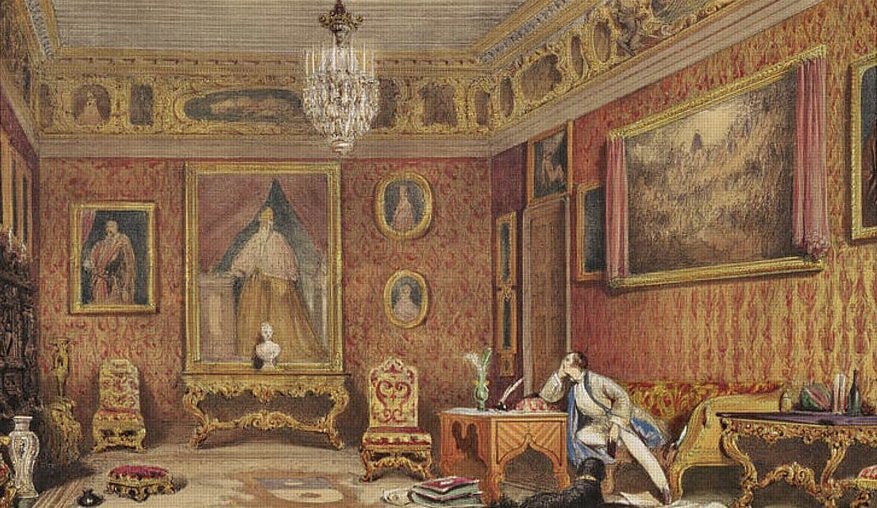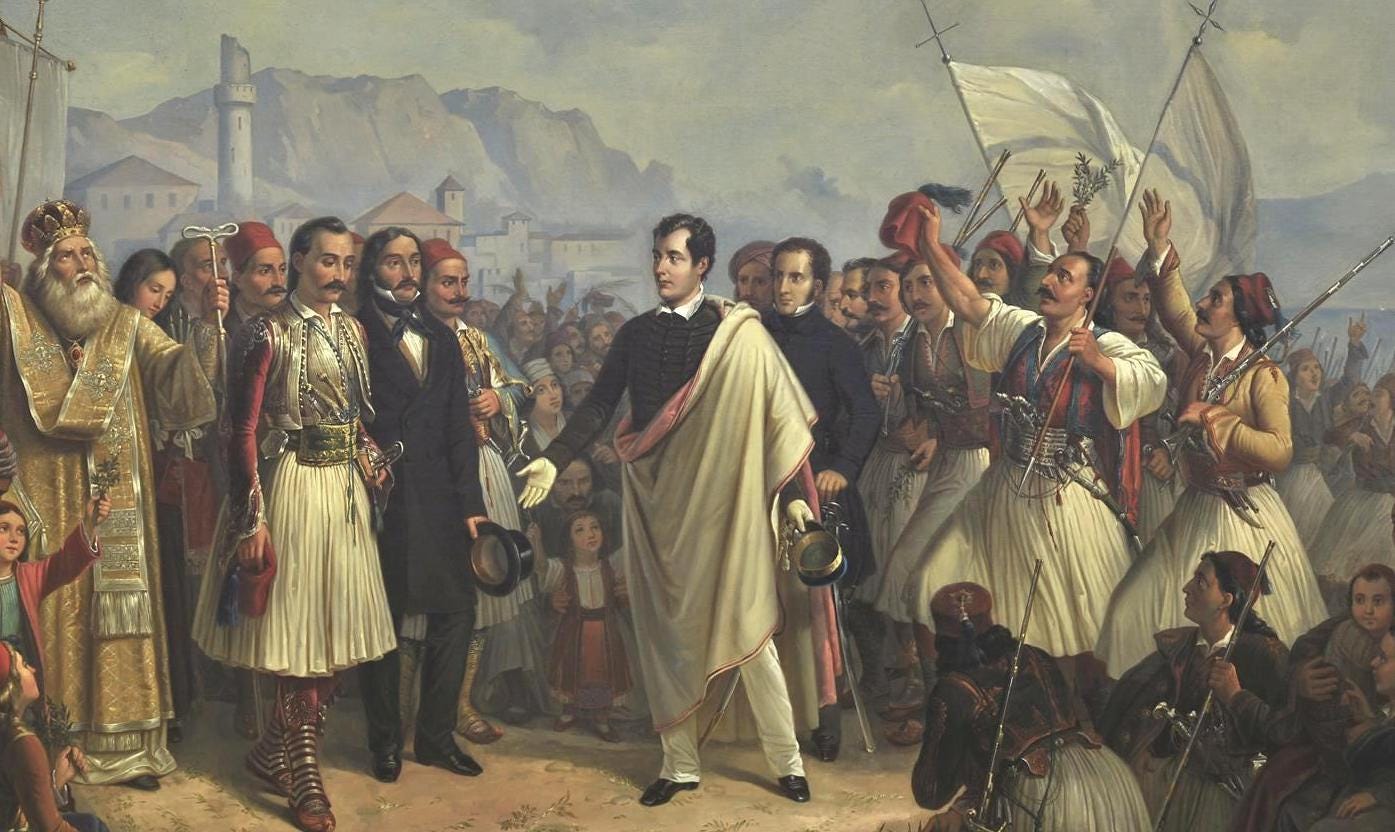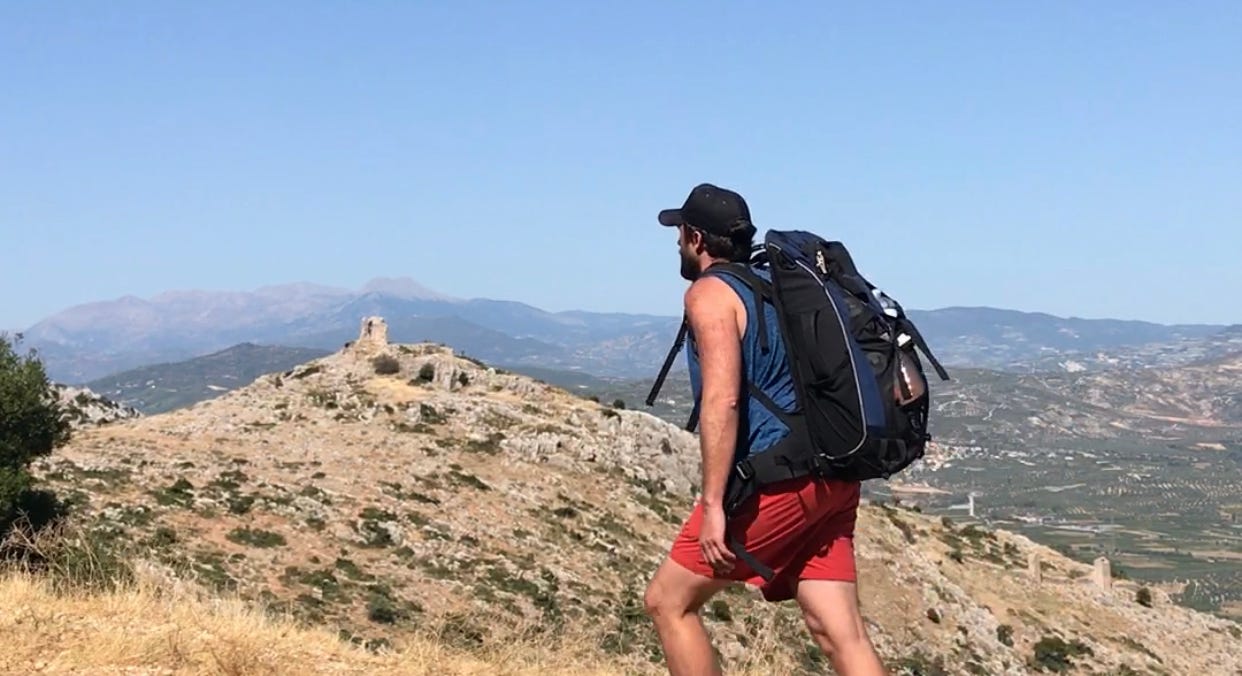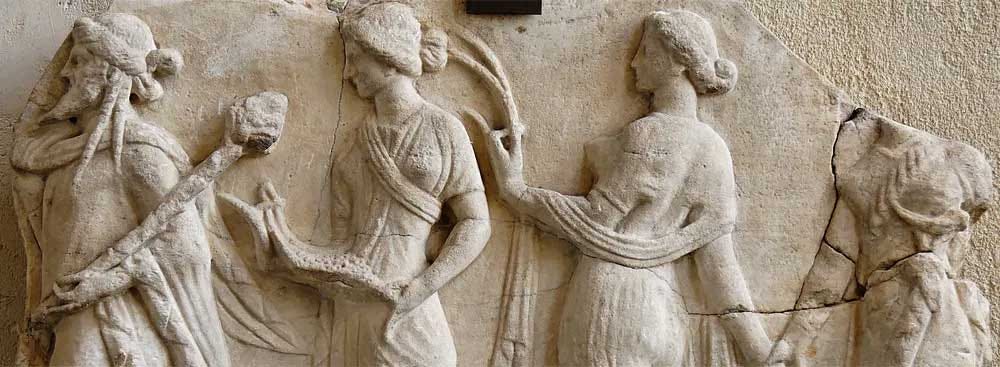‘…the radicalism of beginning, of going back to the first and original source of all things.’
The quotation is from Thomas Mann.
He was talking about The Ring of The Nibelungs, and the primeval chord that started World War One. Wagner himself was obsessed with The Oresteia, the only surviving Tragic trilogy—whose sublimity transported him so happily out of the present that he never quite returned there. All roads do not lead to Rome—only the toll-roads do. All free and open roads lead to Athens.
So what did Mann mean by the ‘radicalism of beginning’?
By returning to certain points of dynamic origin we find at our imagination’s feet unlimited possibilities. Upon returning to the start of a process, historical or dramatic, we have ahead of us, again and again, boundless potential. And in the field of human possibilities, the first and original beginning is Ancient Greece.
And that Greek beginning means the 6th century. Less than 100 years saw the advent of liberty, the first brushstrokes of art, the writing down of Homer, the contemplation of physics, the simultaneity of expanded human potential and hopeless individual effort, the dissemination of political power. The third century of recorded history is the swirling archadian1 E-flat out of which leaps the wide-eyed maidens of fate, freedom, and philosophy. Newly emerged from illiterate darkness, these still-archaic Hellenes allow us to conduct the ultimate Thought Experiment. Einstein’s were imaginary concepts; Greece existed—and her history serves as the largest of all possible human visualisations: How, if we started from scratch, would we build a life worth living? Before even we’ve mentioned a single arbitrary date, Greek history allows us to run all of that question’s permutations.
If we were to adorn objects with beauty, which would we adorn and how? If we were to write down all the poetry we know by heart, what tale would it tell? How do we arrange our economy and distribute its fruits—and is that arrangement to be permanent or revocable? To whom do we entrust the decisions that affect our lives, and with how much power entrust them? What measure of credence do we give to the words of those who claim to speak with gods?
At Delphi, at Sparta, at Corinth, at Athens—more than anywhere at Athens—we can engage in this definitive thought-experiment of Beginning. There, in perfect clarity, the Greeks reveal to us a truly radical process, and one in which they and their cities are the essential catalyst. It’s the process of returning to the beginning of meaningful life and finding there again, but always for the first time, boundless possibilities.
The Italian Limit to Byronism.
This boundlessness is true even among modernity. In Venice, Byron chased milkmaids, dieted on soda water, and failed to learn Armenian. In Greece he raised an army and fought a war of liberation. Italy is so overcrowded with new answers that one is unable to ask old questions. So overwhelmed do we become by the beauteous inventions of usurious power that soon we give up on human endeavour. Whatever we might ever create will only ever be another icon around a congested altar—and shortly we’ll have to insert a coin into a box in order to see it. But in Greece!
Desolate, quiet, filled with nothing but space—and therefore greater potential energy—you feel that somewhere, somehow, it might all be attempted again. It probably won’t succeed, because it’ll involve lesser men than yourself—but at least it might be attempted! And potential is everything. From barren Peloponnesian descents, straight into the shallow turquoise sea, you recall also that in Italy you must look only to Brussels or Rome—and find Alps or tourists in your way. In Greece you look out to the crowded despotisms of Egypt, Persia, Albania, India—and only the smallness of your daring impedes your venturing there. Probably though your love of clarity and the prospect of eternal dawn bids you stay precisely where you are, for here alone are beginnings alive.
Bulis and Sperthias.
But still you might like to travel to India? Alexander did that. Is Turkey more to your taste? Xenophon walked across it. Egypt then! The pyramids and crap! Thales was taught there and Herodotus wrote a book on the place. What about Italy then—too-too-crowded Italy? Plato backpacked through Sicily and got banged up abroad there twice. More of a mindful traveller then, a purposeful traveller—and would love to stinge your way through several poor countries to atone for your society’s historical crimes? Bulis and Sperthias already did that too, and in a very grand way.
After Sparta kicked two Persian ambassadors into a well, the city was overcome with fearful guilt. They asked if anybody might offer themselves as sacrifices-in-kind to those innocent virtuous Persians. Two men, Bulis and Sperthias, volunteered—and walked to Persepolis. In Ionia (Greek until 1922, when the Turks committed their—and the 20th century’s—second genocide) they met with the local satrap, Hydarnes. Hydarnes urged the Spartans to urge their city to stop being so Eurocentric and racist, and to ally with Xerxes. Their reply?
You know indeed what it is to be a slave, Hydarnes, but you who have never tasted freedom do not know whether it is sweet or not. Were you to taste of it, not only would you counsel us to fight for it with spears, no—but with axes too.
Instead of vlogging about Sparta’s patriarchy and—Oo doesn’t Turkey have such amazing colours in that photo?—Bulis and Sperthias made it across to Xerxes, strode into his palace with its 15-metre high walls, and in his throne room found the king of kings under guard and seated on high. He demanded they bow to him, for he ruled by the grace of the one true god and Zoroaster was his prophet. Bulis and Sperthias replied:
It is not our custom to bow to mortal men.
Because of the enormity of their balls they were allowed to leave uncrucified.
The point is, that unlike the adventures of Napoleon, which would require your dragging around a horse-cannon—and unlike the adventures of Freddie Chapman, which would need the Japanese to leave their cubicles—Greek adventures are emulatable. Anybody can set off from Athens and just… walk, and if you’re bravery aligns with your poverty you can sleep outside too. (I’ve walked to Sparta, I know this to be true.) Shortly your ancient discomfort reveals that the softness of civilisation has little to do with being civilised. You feel the world to be yours, if a little large in the wandering, and are ready to answer anybody who asks you where you’re from: ‘The kosmopolites,’ the world-city—found whole in a cave and felt fully on a beach.
Beginnings, clarity, adventure—all are rather ungraspable though. We need more tangible proof that Ancient Greece is the most liberating of all subjects that can be studied as well as lived. The first proof—and the realest of all things—is reality.
Unreality, in the form of The Ideal, is so ubiquitous in modern thought that most of us can’t see just how steeped in prophecy we are. The Greeks, before Plato, liberate us in a heartbeat here as well. In opening our eyes as though for the first time, we look only for the way things are. And if we look for the reality of the Beginning itself, we find the first Hellenic truth to be that there was no pristine human condition.
On Whose Children We Really Are.
We were born the children of Atreus and Aerope, not of Adam and Eve. Conceived in lust and conflict, we slid into the world impulsive and conflicted. There was no perfection from which we strayed and are therefore wicked; the world never was an Eden, not at least once we had appeared in the place. Earth is rather the Meadow of Até, the field in which our selfish delusions do little but heap new misfortunes upon themselves. There is also no perfect state towards which we ought to strive to return. We were never there, and any suggestion of such an end must inherently be speculation, prophecy, delusion. We cannot rise again, because we are not fallen—never were we on high beside the deathless gods. We are human beings, born to die, πολύπονος βροτός—many-suffering mortals. We are as we are, we can be little better—we are often far, far worse. From our suffering we might gain wisdom, and to our children pass on advice. There is no other recompense. Life is marvellous; living’s just not all that great.
Because we never were happy, or innocent, or free—we cease to expect to be so in the world. But we never were enslaved either, nor evil, nor despairing—and cannot fear to be those. Liberated from hope, we look at the world in order to discover only what it offers in reality. Immersion in this most radical of beginnings enables us to see wide-eyed that again and always—and truly—the world contains unlimited human potential.
The Five Words of Hellenism.
But in singing of possibilities, of adventure, of reality—of beginnings—I have sung too much of what is limitless. A Hellene would interject that I am sinning against logic, exaggerating to impiety—for limits were the essence of their ethical universe. Not of infinites and wholes did they in their newness speak, but of boundaries and portions. These concepts defined and guided their lives. Limits to how much land a person might own became diké, became Justice. The portion of life allotted to us became our moira, became our Fate. To really dive into the radicalism of the Greek beginning we would need to see Justice and Fate as only two aspects of an entire worldview. For as Buddhism has its Five Precepts, Ancient Greece has its Five Words:
Thanatos. Diké. Physis. Isonomía. Tragodía.
Death. Justice. Nature. Equality. Tragedy. Together they explain the aboriginal outcome of the West’s beginning, the original permutation of humanity’s greatest Thought Experiment. They return us again and again to first processes—to dynamic concepts and necessary opposites, the irreconcilables that define conscious life. They are the Beginning from which limitless possibilities emanate, and the circumscriptions that preserve that limitlessness.
Lived, the Five Words would form their own secular religion. But each needs its own introduction, and today’s dozen hours are up…










